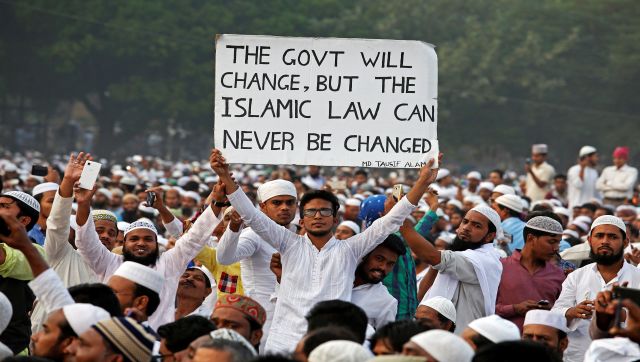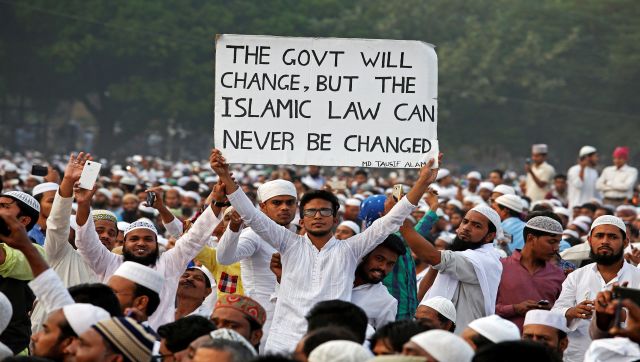The Madras High Court is a court in whose jurisdiction hundreds of thousands of cases of murder, rape, theft, arson, family disputes, property disputes and various other issues pertaining to the real world are pending with no sign of backlog getting cleared. In its esteemed view, the court has decided that given this state of affairs, the best use of its time is to prioritise orders on making the singing of a song mandatory by hearing a case that has nothing to do with singing.
The Madras High Court has ordered the people of Tamil Nadu, among whom Tamils are a huge majority, to compulsorily demonstrate their patriotism by singing a Bangla song Bande Mataram (not Vande Mataram as it is erroneously called) written by a Bengali addressing the people of then-Bengal (a majority of which is now a sovereign nation state called the People’s Republic of Bangladesh). This is not ridiculous. This is not absurd. This is not crossing the limits of one’s powers. This is not anything that might be deemed to be disrespectful towards the Madras High Court’s order.
The court order makes compulsory the playing and singing of Vande Mataram, the corrupted version of Bande Mataram, in a variety of places at various frequencies. The order states:
“The National Song Vande Mataram shall be played and sung in all schools/colleges/universities and other educational institutions at least once a week (preferably on Monday or Friday). The National Song Vande Mataram shall be played and sung in all government offices and institutions/private companies/factories and industries at least once a month. The Director of Public Information is directed to upload and circulate the translated version of Vande Mataram in Tamil and English thereby making it available on government websites and social media.
Let a copy of this order be marked to the chief secretary of the government of Tamil Nadu, who shall issue appropriate instructions to the concerned authorities. In the event, any person/organisation has difficulty in singing or playing the National Song, he or she shall not be compelled or forced to sing it, provided there are valid reasons for not doing so. The youth of this country are the future of tomorrow. This court hopes and trusts that this order shall be taken in the right spirit and also implemented in letter and spirit by the citizenry of this great nation.”
Earlier, such mandatory singing of certain songs or making certain postures was largely limited to Hindi-belt politicians of the Hindutva ilk. Now the judiciary seems to like what these Hindi-belt Hindutva-types have preached for long. Whether that is purely coincidental after 2014 is not something on which I would be able to speculate.
It just so happens that is Bande Mataram song is not at all a song about the Indian Union in any form . It is a song about Bengal and in the song, the author Bankim Chandra Chattopadhyay is rather explicit about that fact. The full version of the song mentions seven crore children of the motherland (which was approximately undivided Bengal’s population at the time — the population of British acquisitions in South Asia that were packaged as India had a population of 23 crore then). Chattopadhyay could imagine Bengalis only hailing Mother Bengal — there will be people today who will take such an invocation in West Bengal today as treasonous. Even the so-called “Bharat Mata” concept is a repackaged and renamed version of Mother Bengal of Abanindranath Thakur .
Now, all of this can hopefully be erased from public memory via NCERT in times to come, but as of now these facts exist in the public domain for verification. To the chagrin of many, both Chattopadhyay and Thakur have already made their respective marks and passed away, hence, they can’t be included in committees or given election tickets so that they can revise what they have already created. It is unfortunate that non-Bengalis have taken as their touchstone of patriotism and motherland love a song that is not about their motherland, but about a land where the major part is now known as Bangladesh. That reflects a serious lack of imagination.
If that was not enough, the high court has now decided that Tamils must demonstrate their patriotism and loyalty to the Indian Union by singing paeans to undivided Bengal, and hence, Bangladesh. That must be a very weird test or demonstration of patriotism for one’s own homeland — especially so when the court, in its judgment, insists that they also sing a Hindi-pronunciation corrupted version of the song written by Chattopadhyay.
As is clear from the Madras High Court’s order, it recognises that the song itself is not widely known in Tamil Nadu and for the song to be widely known in Tamil Nadu, it has to be in Tamil. Note how when the issue is about actually getting people to know something as opposed to excluding people from it, Hindi becomes irrelevant in Tamil Nadu. If the Madras High Court recognises this, how come the Union government offices and institutions in non-Hindi states insist on Hindi? I do not expect the Madras High Court to pass any order making the dominant non-Hindi language of a non-Hindi state mandatory in Union government offices of a non-Hindi state.
Courts are part of a system and do not stand outside the system. The same court that has directed a Tamil version for Bande Mataram has not showed much inclination to make Tamil the language of the Madras High Court. Neither has the Madras High Court ever directed the Union government to produce an official Tamil version of the Constitution of India, without which there is no concept of a “national song”. The priorities of the Madras High Court are quite clear. Incidentally, the official English translator of Bande Mataram, the revolutionary turned ascetic Aurobindo Ghosh had called for this very song to be the “National Anthem of Bengal”. Bande Mataram is only national when the nation in question is Bengal. As of now, no one has prosecuted Aurobindo posthumously for treason.
The court’s job is to give pronouncements according to the laws of the land. From which law of the land do these singing frequencies of once a month or Monday/Friday originate? What is a valid reason for not singing the song? Is the refusal of a Tamil to compulsorily sing praises of Mother Bengal a valid reason? The song is in Bangla. Which article of the Constitution states that a Tamil must know a certain Bangla song? If a Tamil doesn’t know a Bangla song (a Bangla song translated into Tamil is still a Bangla song) or refuses to learn it, what article of the Constitution forces anyone to learn Bangla? None, as far as I know.
Now, if this person is prosecuted, is not the person being prosecuted for knowing only Tamil? What about those Tamils who are illiterate and only know one spoken language — their mother tongue. Why are standards on patriotism then different between Bangla speakers (who sing a song in their language) or a Tamil speaker, a literate person or an illiterate one? Why are such demonstrations of “patriotism” to be limited to schools given the huge drop-out rates of schools? Why only two-days? Why not every day? Why not every hour or every waking moment? Can constant demonstration of “patriotism” ever be a bad thing? If so, singing of Bande Mataram compulsorily how many times is good and when does it become bad, if it is bad at all? Why don’t all Indian citizens sing Bande Mataram all the time?
Why is the site of singing limited to offices? What about work sites? The domestic help’s worksite is the moneyed person’s home. Shouldn’t the domestic help be singing, once a month? Should the woman carrying a load of cement doing contract work on real estate projects be singing, once a month, as she unloads. May be the court should also pass an order which would direct employers that no salary can be deducted for “National Song singing time” given that most labourers have chunks deducted from their salaries for peeing for too long or arriving five minutes late or being sick like other human beings. Should farmers in the arid lands of drought-hit areas and deserts also sing a song about some “Sujola, Sufola (water-filled, fruit-filled)” mother by taking a break from suicide contemplation? What if West Bengalis start singing this song with the actual meaning of the song in mind? Will they be prosecuted for partial loyalty to Bangladesh? Or will some deeper test of deeper loyalty be devised then? And mind you, the order says nothing about compulsory singing in courts.
Prior to 1947, the British wanted natives to compulsorily sing God Save the King/Queen. There was a compulsion because natives were not citizens, but subjects. The Indian Union has been a republic since 1950. How can any man-made Constitution force any citizen to be a certain way mentally as long as that is not causing any harm to any living being? What if a person is not too enamoured by Mother India or Mother Bengal? What is the kind of ‘love’ that one has to perform under duress? You can answer that question.


)




)
)
)
)
)
)
)
)